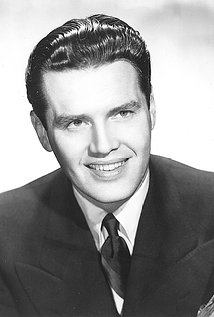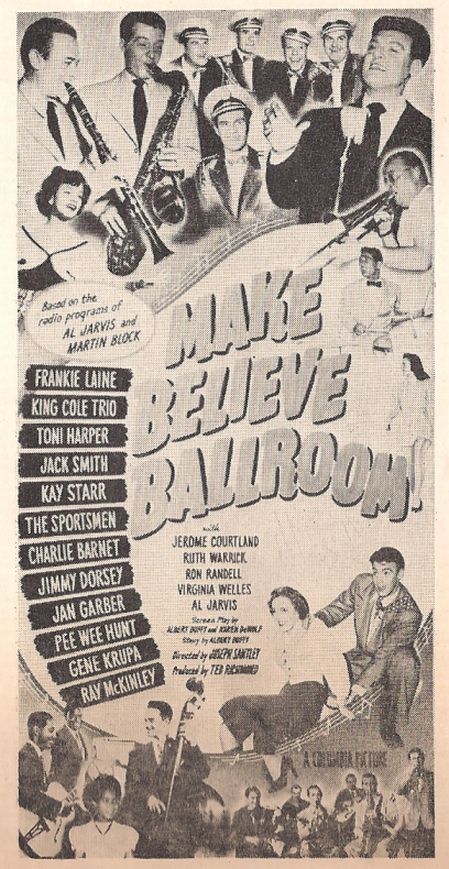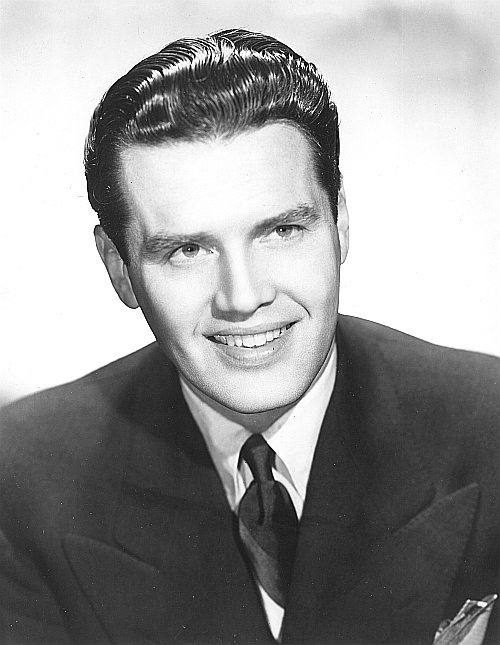Radio crooner "Smilin' Jack Smith" was a popular 40s and 50s personality. He was born Jack Ward Smith on Bainbridge Island, across Puget Sound from Seattle, Washington. His father, Walter Reed Smith, was the captain of the naval destroyer USS Dixie. Jack was named after the fort they were stationed at the time, Fort Ward. Jack's...
Show more »
Radio crooner "Smilin' Jack Smith" was a popular 40s and 50s personality. He was born Jack Ward Smith on Bainbridge Island, across Puget Sound from Seattle, Washington. His father, Walter Reed Smith, was the captain of the naval destroyer USS Dixie. Jack was named after the fort they were stationed at the time, Fort Ward. Jack's younger brother, Walter Reed Smith II, later known as Walter Reed, became a well-respected character actor and occasional leading man. Following his parents' divorce at age 11, Jack, a good student, decided to study to be an architect, following in the path of three of his uncles. However, at age 15, he earned a job singing lead in a trio at the Los Angeles Ambassador Hotel's famed Cocoanut Grove, replacing Bing Crosby's trio, The Rhythm Boys, who had just been fired. They went on to call themselves The Three Ambassadors. The group clicked and managed to find consistent work in swanky hotels and clubs from San Francisco to New York. The trio earned choral jobs in such movies as Walking on Air (1936), in which they sang "My Heart Wants to Dance" and appeared on the popular radio programs of the day including The Philip Morris Show, Your Hit Parade and The Kate Smith Hour. The trio broke up in 1939 and Jack, a strong baritone with a tenor lilt, went solo. Some of his popular hits would include "I'll Be with You in Apple Blossom Time", "Civilization" and "Jack, Jack, Jack". He earned his own radio show in 1945, which featured such established singing stars as Dinah Shore, Margaret Whiting and Ginny Simms. Following a guest appearance in the musical film Make Believe Ballroom (1949), Jack was offered a secondary role in Warner Bros.' On Moonlight Bay (1951) opposite Doris Day and Gordon MacRae . Playing Doris' nerdy suitor Herbert Wakely, loses the love game pretty easily to handsome MacRae. Radio fans of Jack did not like this unflattering image of him, and Jack, actually a handsome, strapping figure, turned down the role when it was repeated in the sequel By the Light of the Silvery Moon (1953). Radio lost its core audience with the coming of TV and Jack subsequently lost his show in 1952. He switched gears and became the TV host of the long-running show You Asked for It (1950) during the 1958-1959 season, which answered viewers' requests for unusual stunts, sights, etc., and stayed with it in various syndicated versions until 1991. His career lasted well over six decades.
Show less «





